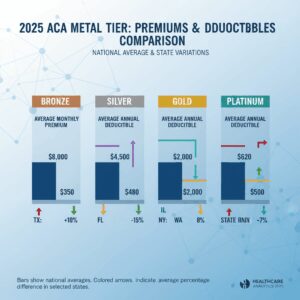
Purchasing a home is a significant milestone, and navigating the sea of mortgage options can be daunting. Understanding the different types of mortgages can help you make an informed decision that aligns with your financial goals and lifestyle. Let’s break down the most common types of home loans and explore who might benefit most from each to help you decide which is right for you.
Fixed-Rate Mortgages: Stability and Predictability
A fixed-rate mortgage is exactly what it sounds like—a mortgage with an interest rate that remains the same for the life of the loan. The most common terms are 15, 20, and 30 years. This type of mortgage is ideal for homeowners who prefer stability and predictability in their monthly budget. Since the interest rate doesn’t change, your monthly payments are consistent, making financial planning easier.
Pros:
- Predictable payments make budgeting straightforward.
- Protection from rising interest rates, ensuring your payments won’t increase over time.
Cons:
- Typically comes with higher initial interest rates than adjustable-rate mortgages.
- Less flexibility to take advantage of falling rates without refinancing.
Best for: Buyers who plan on staying in their home for a long time and prefer consistent payments.
Adjustable-Rate Mortgages (ARMs): Lower Initial Rates with Future Adjustments
Adjustable-rate mortgages start with a lower interest rate for a fixed period (usually 5, 7, or 10 years), after which the rate adjusts annually based on market conditions. This initial lower rate can make larger or more expensive homes more affordable in the short term. However, there is the risk that rates will rise in the future, potentially increasing your monthly payments.
Pros:
- Lower initial interest rates, leading to lower monthly payments at the beginning of the loan.
- Potential for decreasing rates, depending on economic conditions (though it’s important to plan for the opposite).
Cons:
- Uncertainty after the initial fixed-rate period. Monthly payments can increase if interest rates rise.
- Complex terms and conditions that may be difficult for some borrowers to navigate.
Best for: Buyers who plan to sell or refinance before the end of the initial fixed-rate period or those who anticipate a higher income in the future.
Government-Insured Loans: FHA, VA, and USDA Loans
These loans are backed by different branches of the federal government and are ideal for buyers who might not qualify for conventional loans.
- FHA loans are insured by the Federal Housing Administration and allow for lower down payments and less stringent credit requirements. They are a popular choice for first-time homebuyers.
- VA loans are guaranteed by the Department of Veterans Affairs and offer benefits like no down payment and no private mortgage insurance (PMI) for qualified veterans, active-duty service members, and certain members of the National Guard and Reserves.
- USDA loans are managed by the Rural Development program of the U.S. Department of Agriculture. They offer financing with no down payment, reduced mortgage insurance, and below-market mortgage rates to rural and suburban homebuyers who meet certain income requirements.
Pros:
- Lower or no down payment requirements.
- Flexible credit qualifications.
- Potential for other savings like no PMI or reduced mortgage insurance.
Cons:
- Limited to certain types of buyers or properties.
- May include additional fees or requirements, such as mandatory mortgage insurance for the life of the loan in the case of FHA loans.
Best for: Buyers who need more flexible qualification criteria or those eligible for specific government benefits.
Jumbo Loans: Financing for High-Cost Properties
Jumbo loans are for financing properties that exceed the conforming loan limits set by Fannie Mae and Freddie Mac. Because they involve larger sums, jumbo loans typically have more stringent credit requirements and may require larger down payments.
Pros:
- Allows buyers to finance luxury homes and high-cost properties that exceed conventional loan limits.
- Competitive interest rates for qualified buyers.
Cons:
- More stringent credit requirements and financial vetting.
- Higher down payments and potentially higher interest rates compared to conforming loans.
Best for: Buyers looking to purchase high-value properties who have excellent credit and sufficient resources to handle larger down payments and potential interest rate increases.
Balloon Mortgages: Short-Term Solutions with a Big Ending Payment
Balloon mortgages require monthly payments for a set period followed by the payment of the remaining balance at the end of the loan term. This can be a risky option because it requires refinancing or paying off a large sum at the end of the loan period.
Pros:
- Lower monthly payments initially.
- May be easier to qualify for than other types of conventional loans.
Cons:
- Large lump-sum payment due at the end of the loan term.
- Risk of having to refinance at potentially higher rates.
Best for: Buyers who expect to have a significant increase in their financial resources by the time the balloon payment is due, or those who plan to sell the property before the balloon payment comes due.
Choosing the right mortgage depends on your financial situation, how long you plan to stay in your home, and how much risk you’re willing to take on. Each type of mortgage has its advantages and drawbacks, and the best choice depends on your individual needs and circumstances. Consider speaking with a financial advisor or mortgage broker who can provide personalized advice based on your financial profile and the current housing market. Making an informed decision will help you enjoy the benefits of homeownership with confidence and peace of mind.
Unlock Full Article
Watch a quick video to get instant access.










